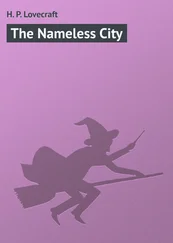Maurus Jokai - The Nameless Castle
Здесь есть возможность читать онлайн «Maurus Jokai - The Nameless Castle» весь текст электронной книги совершенно бесплатно (целиком полную версию без сокращений). В некоторых случаях можно слушать аудио, скачать через торрент в формате fb2 и присутствует краткое содержание. Город: New York, Год выпуска: 1898, Издательство: Doubleday, Page & Company, Жанр: Историческая проза, на английском языке. Описание произведения, (предисловие) а так же отзывы посетителей доступны на портале библиотеки ЛибКат.
- Название:The Nameless Castle
- Автор:
- Издательство:Doubleday, Page & Company
- Жанр:
- Год:1898
- Город:New York
- ISBN:нет данных
- Рейтинг книги:4 / 5. Голосов: 1
-
Избранное:Добавить в избранное
- Отзывы:
-
Ваша оценка:
- 80
- 1
- 2
- 3
- 4
- 5
The Nameless Castle: краткое содержание, описание и аннотация
Предлагаем к чтению аннотацию, описание, краткое содержание или предисловие (зависит от того, что написал сам автор книги «The Nameless Castle»). Если вы не нашли необходимую информацию о книге — напишите в комментариях, мы постараемся отыскать её.
The Nameless Castle — читать онлайн бесплатно полную книгу (весь текст) целиком
Ниже представлен текст книги, разбитый по страницам. Система сохранения места последней прочитанной страницы, позволяет с удобством читать онлайн бесплатно книгу «The Nameless Castle», без необходимости каждый раз заново искать на чём Вы остановились. Поставьте закладку, и сможете в любой момент перейти на страницу, на которой закончили чтение.
Интервал:
Закладка:
At this moment the clerk opened the door.
“Fetch our luggage, Audiat; we are going to leave this damned lunatic asylum. The Herr Count may see to it then how he renews his lease.” Hereupon he kicked off the socks with such vigor that the very castle shook. Then, grasping his sword in his hand, he marched out of his room, and down the staircase, to prove that he was not fleeing like a coward, but was clearing his way by force.
When the clerk, who went to fetch the luggage, was about to enter the groom’s apartment, the count came toward him and said:
“You are the vice-palatine’s clerk?”
“That’s what they call me.”
“When do you expect to become a lawyer?”
“When I have passed my examination.”
“When will that be?”
“When I have served a year as jurat, and have paid a ducat for my diploma.”
“I will give you the ducat, and when you have become a lawyer I will employ you as my attorney at six hundred guilders a year. I know that a Hungarian gentleman will not accept a gift without making some return; I ask you, therefore, to give me for this ducat some information.”
“What is it you wish to know?”
“How can I obtain possession of a portion of Lake Neusiedl for my own use alone?”
“By becoming a naturalized citizen of the county, and by purchase of a portion of the shore. I dare say there are some landowners on the shore who would be glad to part with their possessions in exchange for solid cash. If you buy such an estate you will have sole right to that part of the water in front of your property, and to the middle of the lake.”
“Thank you. One more question: if you were my attorney, what could you do to prevent me from being ejected from this castle, in case I did not sign a new contract with the present owner?”
“First, I should take advantage of the law of possession, and drag the case through a twelve years’ process; then I should appeal, which would postpone a settlement for three years longer. Would that be long enough?”
“Quite!”
The count nodded a farewell to the youthful jurist without even inquiring his name; nor did Audiat venture to propound a like question to his future employer.
Bernat bácsi did not, as he had promised, return to the manor to tell the baroness the result of his visit. He drove direct to his home.
PART III
THE MISTRESS OF THE CATS
CHAPTER I
When they heard the call, “Puss, puss!” they scampered down the roof, leaped from the eaves, and vanished, one after the other, between the curtains of the open window. It was quite an ethnographic, so to speak, collection of cats; a panther-like French pussy from Dund, a Caucasian with long pointed ears, one from China with wavy silken fur and drooping ears. Then the window was closed, for the company were all assembled—four cats, two pug-dogs, and a sparrow, and the hostess, a young girl.
The girl, to judge from her figure, was perhaps fifteen years old; but her manner and speech were those of a much younger child. With her arched brow and rainbow-formed eyebrows, she might have served as a model for a saint, had not the roguish smile about the corners of her red lips betrayed an earthly origin. The sparkling dark eyes, delicately chiseled nostrils, and rounded chin gave to her face certain family characteristics which many persons would have recognized at a first glance.
Her clothing was richly adorned with lace and embroidery, which was not the fashion for girls of her age; at the same time, there was about her attire a peculiar negligence, as if she had no one to advise her what was proper to wear, or how to wear it.
Her room was furnished with luxurious elegance. Satin hangings covered the walls; the furniture was upholstered with rare gobelin tapestry. Gilded cabinets veneered with tortoise-shell held, behind glass doors, all sorts of costly toys, and dolls in full costume. On a Venetian table with mosaic top lay a pack of cards and three heaps of money—one of gold, one of silver, the third of copper. On a low, three-legged table was a something shaped like an organ, with a long row of metal and wooden pipes. Near the window stood a drawing-table, on which were sheets of drawing-board, and glasses containing pulverized colors. There was also a bookcase; on the shelves were volumes of Vertuch’s “Orbis pictus,” the “Portefeuille des enfants,” the “History of Robinson Crusoe,” and several numbers of a fashion magazine, the “Album des salons,” the illustrations of which lay scattered about on tables and chairs.
The guests were all assembled; not one was missing. The little hostess inquired after the health of each one in turn, and how they had enjoyed their outing. They all had names. The cats were Hitz, Mitz, Pani, and Miura. They were introduced to the two pugs, Phryxus and Helle. Then the little maid fetched a porcelain basin, and with a sponge washed each nose and paw. Only after this operation had been thoroughly performed were the guests allowed to take their places at the breakfast-table—the four cats opposite the two pugs.
Then a clean napkin was tied about the neck of each guest,—that their jabots might not get soiled with milk,—and a cup of bread and milk placed in front of each one.
No complaints were allowed (the one that broke this rule was severely lectured), while all of them had patiently to submit when the sparrow helped himself from whichever cup he chose. The breakfast over, the guests bow-wowed and miaued their thanks, and were dismissed to their morning nap.
The musical clock now began to play its shepherd’s song; the brass Cyclops standing on the dial struck the hour; the cuckoo called, and the halberdier saluted. Then the little maid changed her toilet. She had a whole wardrobe full of clothes; she might select what she chose to wear. There was no one to tell her what to put on, or to help her attire herself. When her toilet was completed, a bell outside rang once, whereupon she donned her hat and tied over her face a heavy lace veil that effectually concealed her features. After a few minutes the bell rang a second time, and the sound of wheels in the courtyard was heard. Then three taps sounded on the door, and in answer to the little maid’s clear-voiced “Come in!” a gentleman in promenade toilet entered the room and bowed respectfully. First he satisfied himself that the veil was securely fastened around the young girl’s hat; then, drawing her hand through his arm, he led her to the carriage.
On the box was seated the broad-shouldered groom, now clad in coachman’s costume. The gentleman assisted the little maid into the carriage, took his seat by her side, and the black horses set off over the same road they had traversed a thousand times, in the regulation trot, avoiding the main thoroughfare of the village. Those persons whom they chanced to meet did not salute, for they knew that the occupants of the carriage from the Nameless Castle did not wish to be spoken to; and any of the villagers who were standing idly at their doors stepped inside until they had passed; no inquisitive woman face peered after them. And thus the carriage passed on its way, as if it had been invisible. When it arrived at the forest, the horses knew just where they had to halt. Here the gentleman assisted his veiled companion to alight, gave her his left arm, because he held in his right hand a heavy walking-stick, in the center of which was concealed a long, three-edged poniard, an effective weapon in the hands of him who knew how to wield it.
In silence the man and the maid promenaded along the green sward in the shade of the trees. A campanula had just opened its blue eye at the foot of one of the trees, and pale-blue forget-me-nots grew along the path. Blue was the little maid’s favorite color; but she was not permitted to pluck the flowers herself. She had never been told why she must not do this; perhaps it was because the flowers belonged to some one else.
Читать дальшеИнтервал:
Закладка:
Похожие книги на «The Nameless Castle»
Представляем Вашему вниманию похожие книги на «The Nameless Castle» списком для выбора. Мы отобрали схожую по названию и смыслу литературу в надежде предоставить читателям больше вариантов отыскать новые, интересные, ещё непрочитанные произведения.
Обсуждение, отзывы о книге «The Nameless Castle» и просто собственные мнения читателей. Оставьте ваши комментарии, напишите, что Вы думаете о произведении, его смысле или главных героях. Укажите что конкретно понравилось, а что нет, и почему Вы так считаете.












